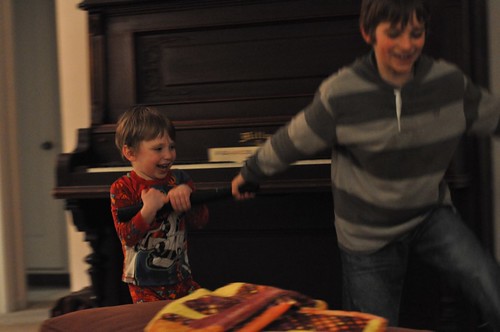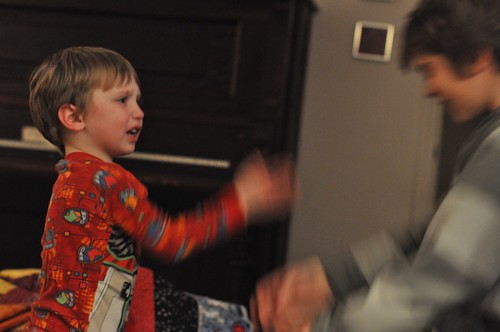I put these words down not to elicit sympathy but to reclaim a moment — ugly and confused and pedestrian as it will be. I put these words down not out of courage but because I’m tired of ignoring them. I put these words down to join a conversation so deep and wide that I’m completely humbled, and swallow words just uttered, stuffing them back into my mouth only to choke on moldered memories. The following is not an accurate account of events long past, but neither is it false, for what is memory but a view through leaded glass, a window colored and distorted yet capable of a truthful rendering of forgotten acts.
Once upon a time
a young man tried to fuck me
as I slept, passed out.
“I’m sorry,†he said,
from between my thighs. “I thought
“you were my girlfriend.â€
Like scratches on a discarded lottery ticket, a series of recent events uncovered memories not worth rereading, yet I return to them. This summer I visited a small town where twenty years ago a man I considered a friend tried to rape me. Six weeks ago, I enrolled my daughter and I in a self-defense class. Three weeks ago, I checked out a library book that was unfamiliar but recommended, and discovered it was about a serial rapist.
I’d thought I was up for the combination of self-defense class and the reading of “Cabot Wright Begins,â€Â (public library) a novel by James Purdy, who is considered by some as one of the greatest and most under-appreciated writers in America in the latter half of the twentieth century. The first complete collection of his short stories was published this year; he died in 2009. But when I went to write about the book, there was more within me to be resolved because I ended up writing about my assault in haiku. It sounds like a joke, and Purdy’s novel is just that, a bitter and comic smash-up between evil and innocence, a satire that provokes and insults, and Purdy succeeds at offending me.
I was innocent.
He was opportunistic.
Blame him. No, blame me.
Under my bathrobe,
I was naked. Police took notes.
No charges, I agreed.
I was drawn to the story like I was drawn to the class filled with women Wright would’ve targeted given that “he was no respecter of age, raping girls, young ladies, middle-aged matrons, and even elderly women,†and like I was drawn to relive my own experience. The whole thing was a scab begging to be scratched.
Wright rapes nearly three hundred women, most whom are never mentioned because the story is less about the rapes than a recasting of the rapes as satire. He isn’t a violent psychopath, but uses some kind of hypnotism to rape his acquiescent victims, mostly nameless women who barely struggle before collapsing in puddles of tears and sweat and semen, only to later call police “more to share their experiences than register a complaint.â€
Afterward he came.
Knocked on my window. Invite
me back in, he begged.
Because of the dispassionate description of the violence, I found myself seeking to understand Wright’s motivation while growing uncomfortably sympathetic toward this fictitious predator, a character whom I was learning to arm myself against during the weekly self-defense class. Reading the book in between sessions where my daughter and I yelled, punched, poked, kneed, jabbed and elbowed the air inhabited by a multitude of Cabot Wrights reminded me that I must foster courage and caution in my daughter and my sons, teaching them respect for sex and boundaries with those they will desire. But, overall, Purdy’s book muddled my mind, abused my heart, and on my tongue lingered bitterness over one man’s name, remembered.
I burned what he’d left.
Wallet, book, mixed tape he’d made.
Kicked ash on his name.
Kept him buried there
twenty years. Wished he stayed
for eternity.
The story also is about the naive car salesman Bernie Gladhart, who is driven by his wife who believes he’ll write the next Great American Novel about the recently paroled Wright. Gladhart moves to Brooklyn in search of Wright and discovers him living in the same hotel. Family friend Zoe Bickle follows Gladhart there and agrees to rewrite the fictionalized memoir, interviewing Wright who cannot even recall the facts about these rapes unless reminded of them.
Rape once, rapist for life?
Labeled thus, must I remain
his victim? Fuck no.
Release me from him.
That gentle, relentless press,
of body and mind.Â
 I typed the name of my assailant into the computer and found him here and there and everywhere, a common name linking strangers whose faces I searched for familiarity. I recognized all; I recognized none. Such is the landscape in “Cabot Wright Begins.”
“The world inhabited by Cabot Wright is very like ours,” short story writer Tom Conoboy wrote in a 2011 review. “What we have are men and women much like ourselves, acting much like ourselves, except… except…. They seem real but they clearly are not. And it’s that discordance again, the unsettling way the reader is drawn down a seemingly familiar path only to emerge into a wholly alien landscape. And so readers can become challenged by the world that Purdy presents. One has to learn how to read him.”
Conoboy’s review is useful in understanding Purdy, who described his own style of writing as both realistic and symbolic: “The outer texture is realistic, but the actual story has a symbolic, almost mythic quality.”
“Readers unable to discard their literal approaches to fiction – and there are, alas, many of them – may balk at this but, of course, what we are dealing with here is allegory,” Conoboy wrote. “What makes Purdy’s approach challenging, though, is the … way he melds reality and allegory in such a distinctive manner.
“So, if one accepts the allegorical nature of Purdy’s fiction, what is Cabot Wright Begins about? Purdy himself puts it simply: it’s ‘about how awful America is.’ It is a direct attack on the rapacity of a consumer society that is turning on itself and eating itself alive.”
This portion of the book where Purdy indulges in biting criticism of television, publishing, Wall Street, race, urban poverty, sex and the false values of American culture is prophetic given that he wrote it in 1964. Romping sentences like this were fun to read:
“Pleasure died 40 years ago in America, perhaps further back, in a wave of carbon monoxide, gasoline, cigarettes for dames, the belief in everything and everybody, tolerance for the intolerable, the hatred of being alone in silence for more than 20 seconds, the assurance that immortality was Americans eating all-cow franks, with speeded-up peristalsis while talking to a crowd of fifteen trillion other same bodies eating sandwiches, gassing cokes, peristalsing, and talking ….â€
Begin or not with Cabot Wright, but read Purdy. His acerbic wit entertained, his story disturbed, and together it was just enough to counter the irritation to injuries covered in twenty years of scar tissue.
“I’m sorry,” he said,
from inside my mind. I hear
words long desired.
To forget I must
forgive him without cheapening
once upon a time.



Very brave post. xxoo
Wow, Rachel, this is intense. Memory of an attempted rape in haiku is amazing. And the way you combine it with the book review and your self-defense class with your daughter blows me away. I encourage you to submit this piece somewhere. The most important message here, for me (as a mother of lots of sons) is: ” I must foster courage and caution in my daughter and my sons, teaching them respect for sex and boundaries with those they will desire.” Where do we even begin?
I think you of an extremely strong woman. If it can happen to you, it can happen to anyone. I think about how strong you are with boundaries and wonder if your experience has intensified this in you. Love, Kyndale
Chelsey, thank you.
Andrea, I struggled with this for a number of weeks before I was ready to share it. Thank you for your encouraging words. As for where to begin with my children? I have no clear direction other than honest and frequent discussions.
Kyndale, I hadn’t made that connection, but now I wonder …
I hope the writing and remembering has brought forth some healing, for you and for other readers who have experienced something similar.
Translating your memories into ways to teach your children is admirable.
And I wish I could kick this guy in the…